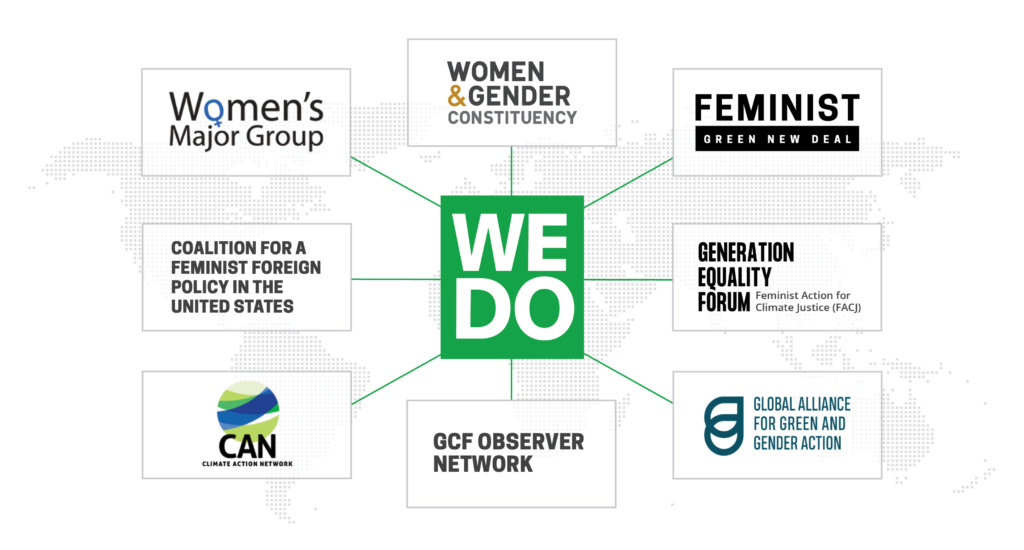Demanding a just and sustainable future across policy spaces
Gender equality has been recognized as intrinsic to peace and justice since the founding of the United Nations (UN), but challenges to achieve the same have remained strong within UN negotiations. WEDO was formed when it became clear that women’s voices were missing in the sustainability agenda—even though they were leading the struggle to protect forests and rivers, biodiversity and land.
Our work in collective
Over its 30-year history, WEDO has worked to bring feminist and environmental justice analyses into—and center the voices of frontline and grassroots women’s rights advocates and leaders in—global and national policy dialogues. WEDO’s work is centered on caucus-building: creating spaces inside policy processes and movements where feminists and women’s rights activists can build joint agendas, map entry points and intersections and voice demands in collective. WEDO coordinates women’s rights caucuses in international policy spaces like the United Nations Framework Convention on Climate Change (UNFCCC) and builds coalitions around the gender dimensions of environmental issues, such as forest degradation, land ownership, biodiversity loss, and disaster risk reduction.
Feminist Foreign Policy (FFP)
In addition to engaging in existing policy processes, WEDO also works to reimagine policy frameworks in order to have people at the heart. One potential pathway for climate justice is advancing the principles of Feminist Foreign Policy (FFP)—a policy approach that promotes gender equality and women’s human rights as well as environmental integrity, while addressing systemic and historical injustices. WEDO Executive Director Bridget Burns serves on the Steering Committee of the Global Partner Network for Feminist Foreign Policy and the Coalition for a Feminist Foreign Policy in the United States.




